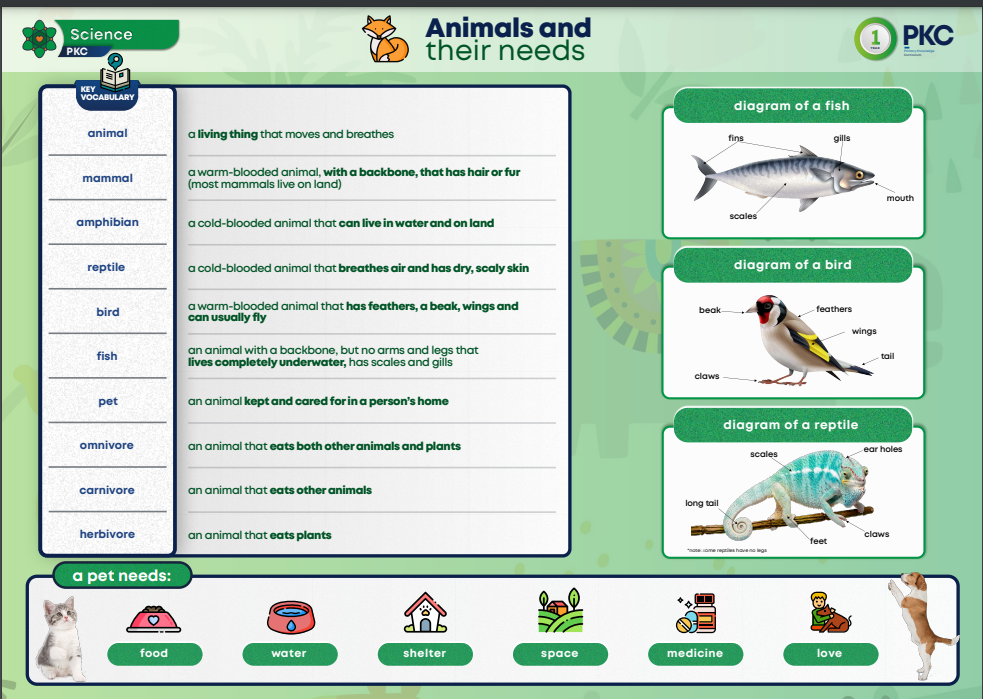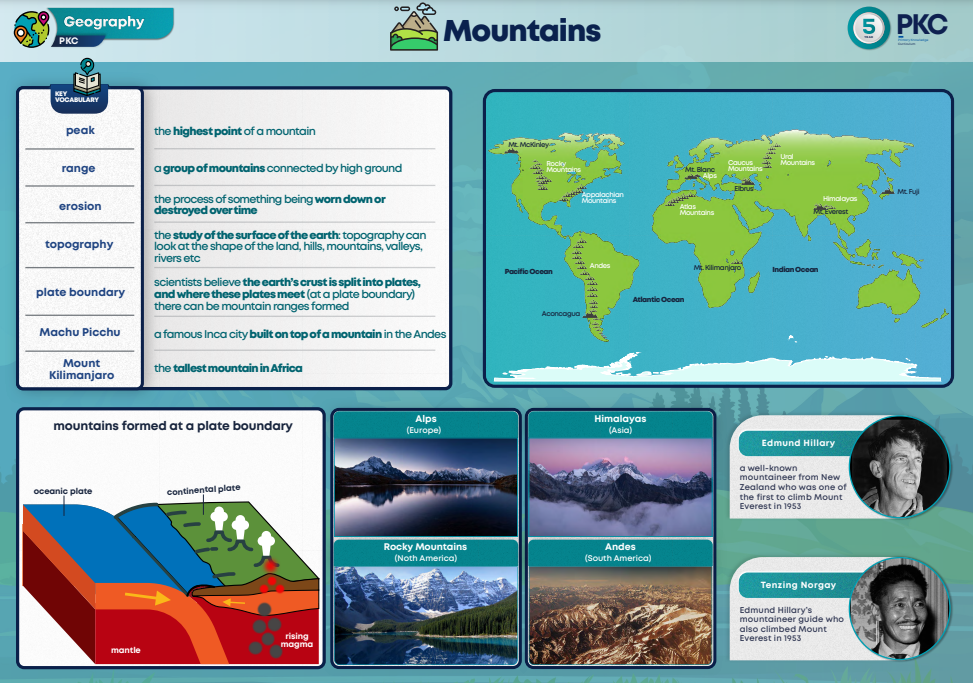
Knowledge Organisers
Knowledge Organisers at home
It is important that any work done with knowledge organisers at home is kept relaxed and supportive.
Ideas for use
- First, discuss the knowledge organiser. Just talk about it and read what is on there. Help the children with any tricky words. Be fascinated by what you are finding out – even if you already know it. Tell your child that you can’t wait to find out more.
- The key vocabulary listed is vital. It will be used in each lesson. Using a 'my turn, your turn' approach is really useful to help build confidence. You say the word, your child says the word. You say the definition, your children says the definition. Do this a few times. You can then mix up the order. You say the word, your child says the definition. You say the definition, your child says the word. You say half the definition, your child ends it. Or your child can test you. They say a word and you give the definition or the other way round.
- You are also able to cover up words from the vocabulary section. You could cover up all the target words and leave your child to write what has been covered. Or you cold cover up the bold words from the definitions and your child has to fill them in. This could be verbal or written.
- When you are out and about you might spot an opportunity to use some of the vocabulary. Rather than naming something, describe it using the definition and tell your child you forgot the name. Or simply say, there is that thing we were talking about, what’s it called? If the word was evergreen you could say – “oh, look at that tree that keeps its leaves all year long, what’s that called?” or “Wow, that’s an evergreen tree, what does that mean?”
- It is also worth checking/ learning the spelling of the keywords. We won’t test this at school, but they will be words that children will need to use in their writing. Keep this low stakes. Some words are very tricky.
- Ask your child if they have learnt anything at school that matches the knowledge organiser or to tell you more than the knowledge organiser shows?
- If the organiser has a timeline, can your child name which event happens before or after an event you name, can they tell or write the events in order. Can your child tell you more about the events?
- With diagrams and images ask why they are there or if your child can write or tell you what they show.
The children have 3-4 knowledge organisers (Year 1/2 have 3, Year 3/4/5/6 have 4). Children in Reception have 1 knowledge organiser each term, which covers Science, Art, Geography, History and Design Technology.
Try to look at each one, once a week. This could be Geography on Monday, History on Tuesday, Science on Thursday and Art on Friday. Only use one or two of the activities at a time.
Remember – the children learn what is on the knowledge organiser over the space of 6 weeks.
They will only know a bit from school at the start.


